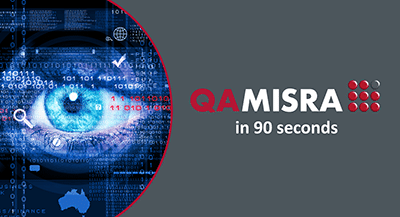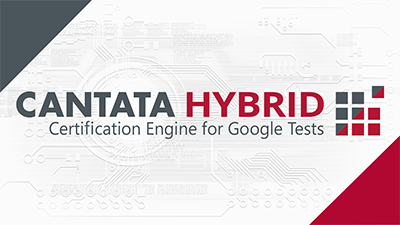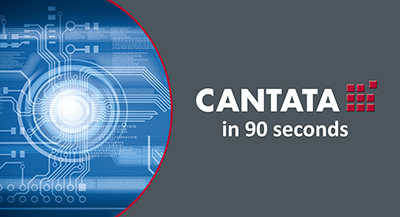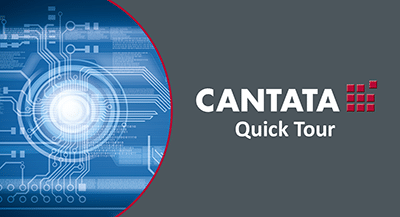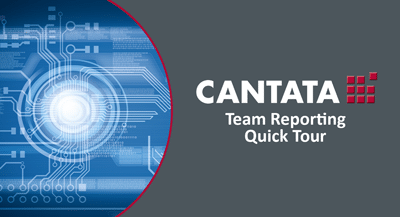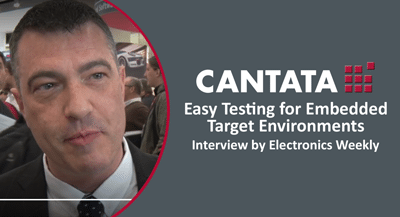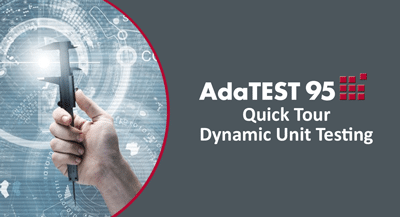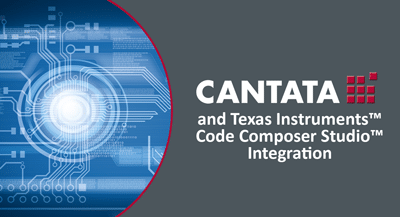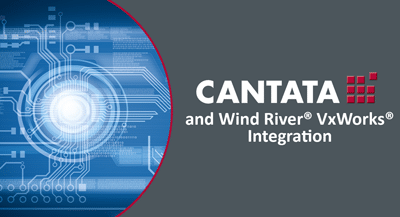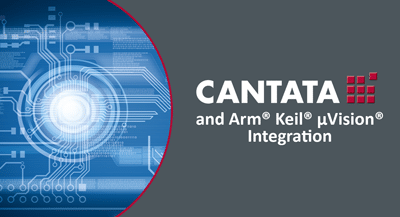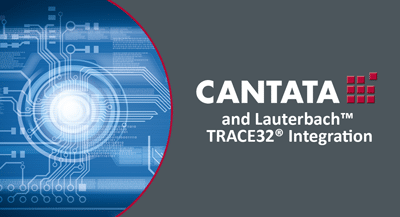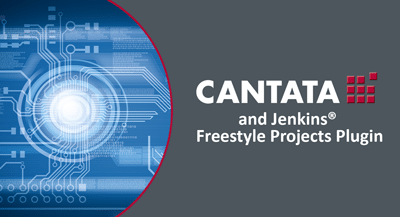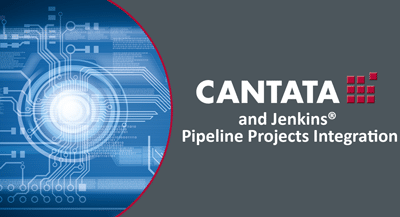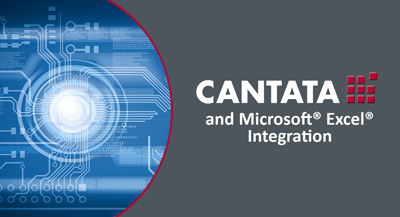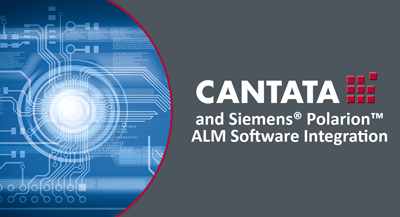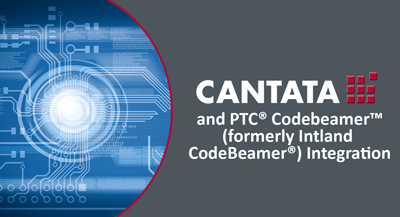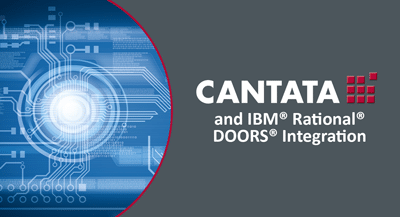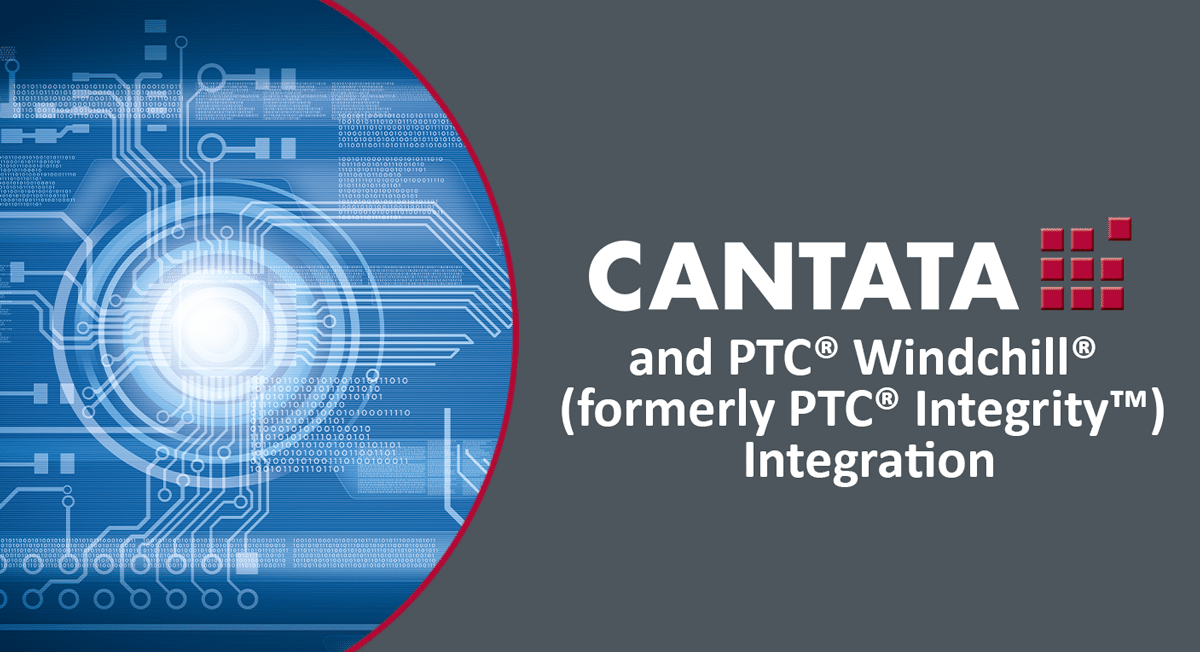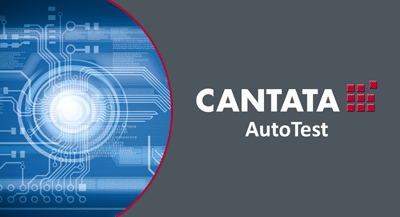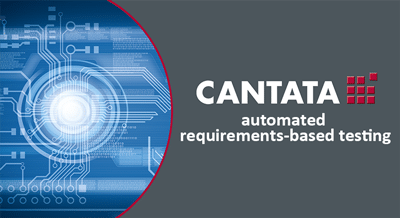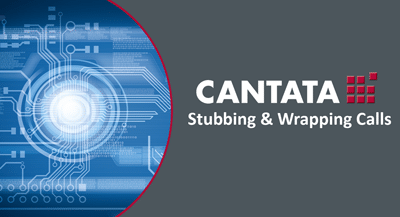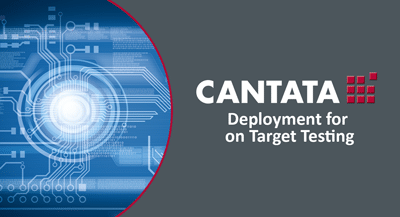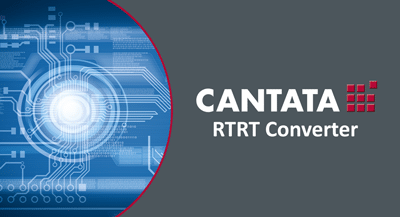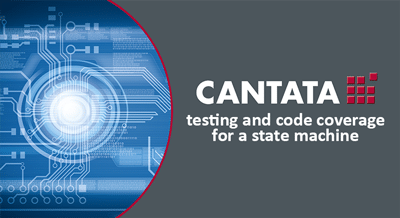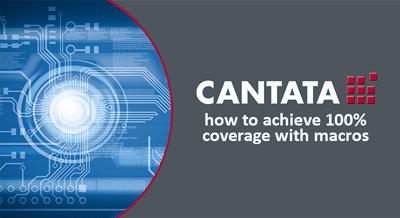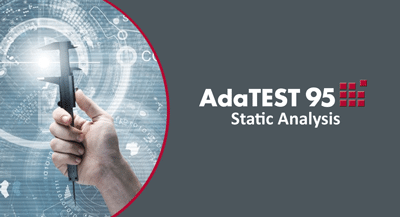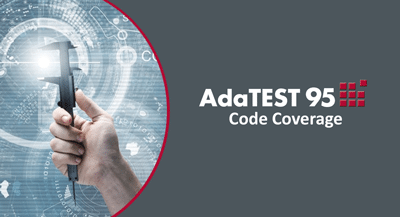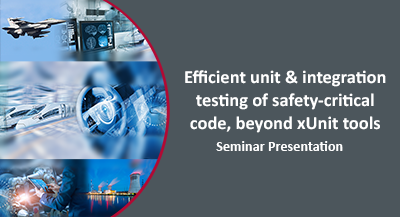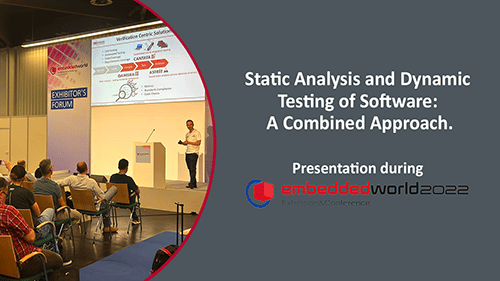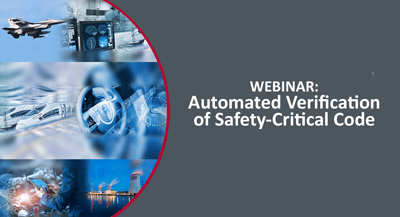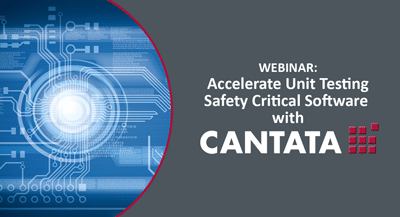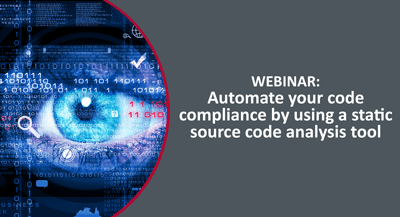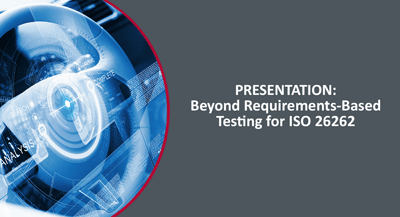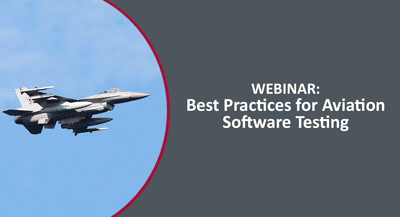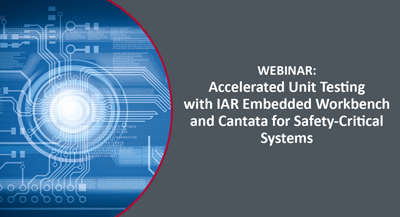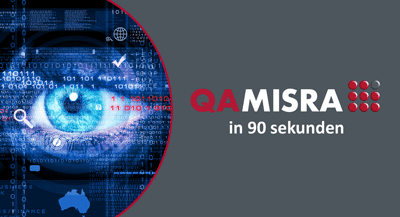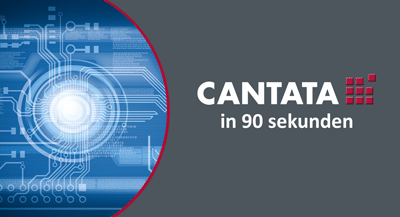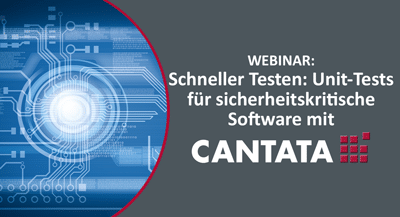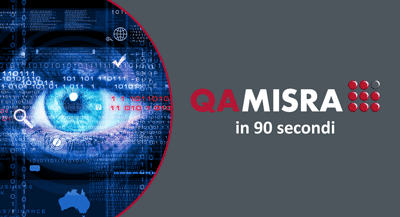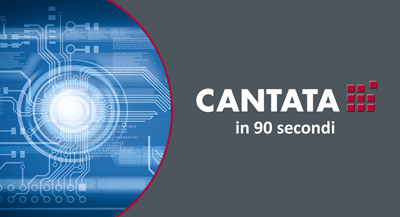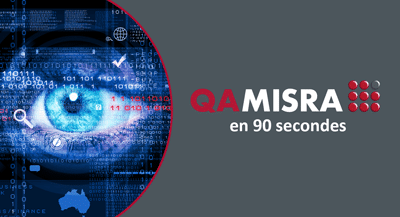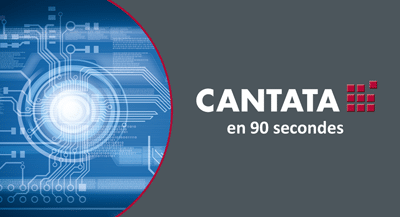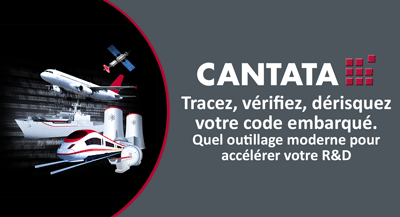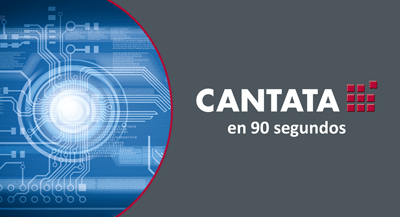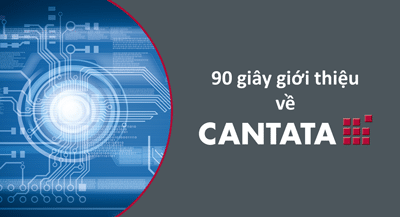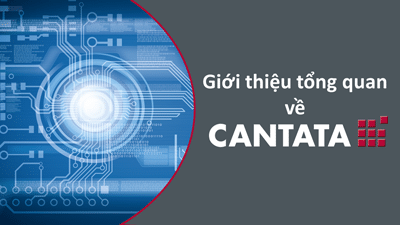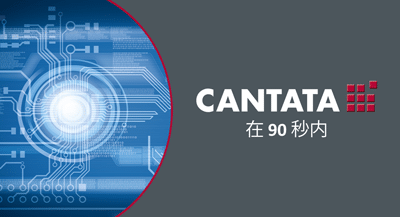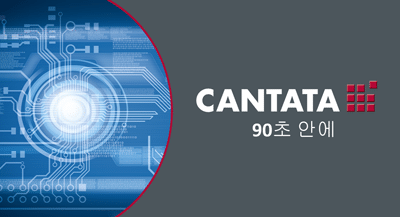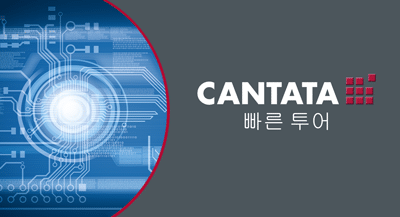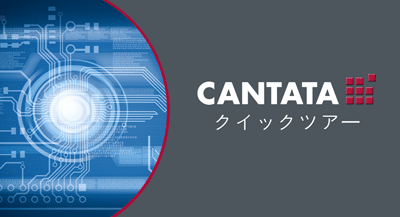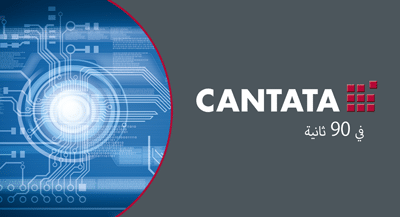The resources in this library will help you understand our software testing tools better and explore their benefits in depth. We refresh the content frequently, so feel free to come back anytime. Most of this material is readily available for you. However, some of these documents are classified as premium, and therefore, we will require your email address to grant access.
CASE
STUDIES
STANDARDS
BRIEFS
DATA
SHEETS
FEATURE
BRIEFS
VIDEOS &
WEBINARS
WHITE
PAPERS
TECHNICAL
INFO
TRANSLATED
RESOURCES
Our curated content packs provide all information to address some of the most common problems when developing software
CASE STUDIES
classified by tool
Cantata
AdaTEST 95
Cantata – Case Studies:
![]()
HITACHI VANTARA’S SELF-DRIVING ASSISTANT
Hitachi Vantara developed the Self-Driving Assistant software for autonomous vehicles. To ensure safety and adherence to standards, they chose Cantata as their testing tool for its ability to conduct unit, integration, and system testing.
![]()
INNOVIZ TECHNOLOGIES: LiDAR AND PERCEPTION SOFTWARE
Innoviz Technologies developed LiDAR and object recognition products for autonomous vehicles. In search of a versatile test automation and reporting solution compatible with ISO 26262 certification requirements, they opted for Cantata due to its strong integration capabilities with their intricate toolchain.
![]()
THE HIGHWAYS AGENCY AND THE NASS PROJECT
The UK Highways Agency (HA) developed the Network ATM Supervisory Subsystem (NASS) to reduce congestion. This case study explores the testing strategy, code design, and module testing procedures used to validate the system’s effectiveness.
![]()
SAAB’S AIRBUS A400M WING FLAPS CONTROL
SAAB, adhering to rigorous safety requirements, used Cantata to certify the Airbus A400M wing flap control system to the highest safety level, generating automatic test reports for efficient issue identification and resolution.
![]()
MEGGITT’S RELIABLE SOFTWARE FOR AIRBUS AND ROLLS ROYCE
Meggitt’s two significant projects were the Engine Interface and Power Monitoring (EIPM) unit for the Airbus A380 aircraft, and the Engine Monitoring Unit (EMU) for the Rolls Royce Trent 900 engine. These projects necessitated robustly tested software to comply with the rigorous safety requirements of the civil avionics industry-standard DO-178B.
![]()
ULTRA ELECTRONICS’S FIRST-LINE TEST SET WITH DASCU
Ultra Electronics required testing tools that aligned with the stringent software testing criteria outlined in the civil avionics standard DO-178B. The Controls Division effectively employed Cantata to conduct C++ testing for the inaugural line test set utilized in conjunction with their Digital Automotive System Control Unit (DASCU).
![]()
OSYS’S TEST SYSTEM FOR ROLLS-ROYCE GAS TURBINE ENGINE
A Comprehensive Case Study on Verifying DE-CATS Software for Rolls-Royce Adour Mk 106 Engine with Cantata. Discover how OSyS achieved efficient unit testing, white-box data validation, and extensive code coverage for optimal results.
![]()
KABA GILGEN AG’S SAFE AND EFFICIENT PLATFORM SCREEN DOORS
Kaba Gilgen AG upgraded metro stations in Paris with half-height Platform Screen Door (PSD) systems, using Cantata to meet the specific project needs. Detailed unit tests were run on all source files, ensuring 100% code coverage.
![]()
THALES’S INNOVATIVE ETCS SOLUTIONS
Thales invested extensively in R&D, so as to produce innovative ETCS solutions. The main task was to develop two applications: one for radio block control on trackside, written in C++, and one for the train itself, written in C.
![]()
OSYS’S ACCEPTANCE TESTS ON RAILWAYS SIGNALING
The project involved performing system acceptance tests on a railway signaling configuration tool that was needed to generate code metrics, assess coverage, and identify untested code areas. Cantata offered an integrated solution that proved simpler and more cost-effective, encompassing all required features.
![]()
FAST FOCUS’S WIRELESS PATIENT MONITORING SYSTEM
FastFocus needed a tool that met IEC 62304 standards, with a well-documented medical device background, reliable vendor support, and advanced features like automatic test case generation, function call control, code coverage, and certification evidence.
![]()
HAMILTON MEDICAL’S VENTILATOR: GALILEO
Hamilton Medical’s cutting-edge ventilator, Galileo, has demonstrated exceptional efficacy in managing challenging ventilation cases. The pivotal factor in Galileo’s triumph is its integrated system control software. Ensuring the utmost quality, the software governing Galileo had to undergo rigorous testing.
![]()
CREO MEDICAL’S CROMA ADVANCED ENERGY PLATFORM
Cantata has been used successfully since the inception of the CROMA Generator, an electrosurgical unit for the purpose of cutting and coagulating tissue, in 2013. At the time of tool selection, Creo Medical required an independently certified automated unit testing tool to verify their software under IEC 62304.
![]()
GE HEALTHCARE’S ENHANCED SAFETY AND FLEXIBILITY IN MEDICAL SOFTWARE
Cantata was employed for white-box component testing for safety-critical code in both host and target environments. Its success led to its implementation in the creation of a New Patient Monitor and a safety-critical Non-Invasive Blood Pressure measurement unit developed by GE Healthcare.
![]()
SIMOCO’S IT & TELCO CONTROL ROOM SYSTEM
Simoco opted for Cantata to systematize unit and integration testing and gauge code quality. The primary project using Cantata involved creating a sizable control room system for a major utility. This system merged digital telephony with mobile radio services, ensuring reliable communication between control room operators and field staff.
![]()
G4S’S MORE RIGOROUS APPROACH TO TESTING
Past experiences have cultivated a profound skepticism towards ‘ad hoc’ software testing methods due to software bugs being a major contributor to field-related issues. Cantata’s static analysis functions were used to eliminate the use of C constructs known to cause problems. Task testing was carried out to discover if there were any design errors in the tasks.
![]()
MARCONI COMMUNICATION’S INTELLIGENT NETWORKS SERVICE CREATION & CONTROL
Given the software-intensive nature of the INventor and the INjector, Marconi Communications consistently pursues improved methods to efficiently generate substantial volumes of dependable C++ code as part of its software process enhancement strategy.
![]()
DR. KEIL’S COMPREHENSIVE TESTING FOR ADMINISTRATION MODULE
This case study centers on Dr. Keil Informationstechnik GmbH & Co KG and a prominent telecom equipment supplier aiming to enhance their administration module reliability while utilizing Cantata as the primary testing tool.
![]()
BRITANNIA BUILDING SOCIETY’S REUSABLE AND RELIABLE TESTING
The BBS Systems Department had a long history of using Cobol and mainframe technology. In common with a general trend in the financial sector, a decision was made to move towards object oriented systems development, using C++. ‘Reusability’ was the main means of achieving this goal.
AdaTest 95 – Case Studies:
![]()
ASTRIUM’S RADARSAT-2 & BEAGLE 2 SOFTWARE
AdaTEST 95 was used to produce on-board software for Astrium’s projects RADARSAT-2 (aimed to perform topographic mapping of the Earth’s surface) & Beagle 2 (a UK-led Mars lander) which faced different challenges in achieving software reliability.
![]()
ASTRIUM’S POLAR PLATFORM SATELLITE
Astrium chose AdaTEST 95 to test its Polar Platform satellite, thanks to its reliability, flexibility, and competitive pricing. The tool resolved the challenge of creating maintainable code and tests, seamlessly integrating into Astrium’s existing procedures without causing disruptions.
![]()
SAAB’S STORES MANAGEMENT UNIT (SMU) FOR THE JAS39 GRIPEN FIGHTER
Saab Aerosystems re-implemented the Stores Management Unit (SMU) for the JAS39 Gripen fighter aircraft. They used AdaTEST 95 for testing, following the RTCA/DO-178B standard at criticality level A.
![]()
ADACORE’S SOFTWARE DEVELOPMENT KIT FOR THE RAVENSCAR PROFILE
The key highlight of the new kit was its run-time environment situated on the target, exerting full control over the running application. AdaCore had to conduct extensive testing to meet the rigorous quality standards set by ESA. To achieve the stipulated 100% statement coverage, AdaTEST 95 was selected.
![]()
LOCKHEED MARTIN’S CSU TESTING OF F-22 TACTICAL AVIONICS
At their Aeronautical Systems plants in Marietta, Georgia, Lockheed Martin developed the US Air Force’s latest air-superiority fighter, the F-22. The Internal Independent Verification and Validation manager was required to find a suitable tool that would facilitate the extensive CSU testing.
STANDARDS BRIEFS
classified by topic
Safety Manuals
Safety Standards
Coding Standards
Safety Manuals:
QA-MISRA SAFETY MANUAL
This Safety Manual provides guidance on using QA-MISRA for coding standards compliance checking in safety-critical contexts. It defines the use cases for analysis of C/C++ code against coding standards and their relationship to the requirements of functional safety.
CANTATA SAFETY MANUAL
This Safety Manual provides guidance on using Cantata for software testing in safety-critical contexts. It covers Cantata tool certification, the safety workflow, test case creation, test execution, and results analysis when verifying safety-related code.
Safety Standards:
![]()
AUTOMOTIVE SECTOR BRIEF
In this sector brief, we highlight the ISO 26262 software standard, which is used in the verification and validation of vehicle-based software. We also discuss how Cantata supports project certification.
![]()
CANTATA STANDARD BRIEFING ISO 26262:2018
This Briefing is intended to serve as a reference to show how Cantata can be used to satisfy the verification and validation requirements of the finalized international standard ISO 26262:2018 Road Vehicles – Functional Safety.
![]()
AUTOMATING REQUIREMENTS-BASED TESTING FOR ISO 26262
This paper examines how automatic test case generation can deliver significant cost savings, while satisfying the recommendations of ISO 26262 ASIL A to D.
![]()
AEROSPACE AND DEFENCE SECTOR BRIEF
In this Sector Brief, we highlight a selection of aerospace & defense projects and customers who have successfully utilized Cantata to fulfill their high-reliability testing requirements, adhering to the DO-178B, DO-178C, and DO-330 standards. Additionally, we delve into how Cantata and AdaTEST 95 contribute to the qualification process.
![]()
CANTATA STANDARD BRIEFING DO 178C
This Briefing is intended to serve as a reference to show how Cantata can be used to satisfy the verification and validation objectives of the finalized international standard RTCA DO-178C – Software Consideration in Airborne Systems and Equipment Certification.
![]()
CANTATA STANDARD BRIEFING AOP-52
This Standard Briefing paper serves as a reference to show how Cantata can be used to satisfy the verification and validation objectives of the international NATO AOP-52 (EDITION 1) – Guidance On Software Safety Design And Assessment Of Munition-Related Computing Systems.
![]()
AUTOMATING REQUIREMENTS-BASED TESTING FOR DO-178C
This paper examines how automatic test case generation can deliver significant cost savings while satisfying the software verification objectives of DO-178C software levels C and above.
![]()
RAILWAYS SECTOR BRIEF
In this sector brief, we highlight a selection of rail systems projects and customers who have successfully utilized AdaTEST 95 and Cantata to fulfill their high-reliability testing requirements. Additionally, we emphasize the significance of the European railway EN 50128:2011 standard and elucidate how Cantata and AdaTEST 95 contribute to project certification support.
![]()
CANTATA STANDARD BRIEFING
EN 50128:2011
This Briefing is intended to serve as a reference of how Cantata can be used to satisfy the verification and validation requirements of the finalized international standard EN 50128:2011 Railway Applications – Communication, signalling and processing systems – Software for railway control and protection systems.
![]()
CANTATA STANDARD BRIEFING
EN 50657:2017
This Standard Briefing paper serves as a reference to show how Cantata can be used to satisfy the verification and validation requirements of the international standard EN 50657:2017.
![]()
MEDICAL DEVICE SECTOR BRIEF
In this sector brief, we highlight the IEC 62304 software standard, which specifies lifecycle requirements for the development of medical software and software within medical devices. Apart from that, we will spotlight the FDA guidance document that outlines validation principles for medical device software, and we’ll also discuss how Cantata supports project certification.
![]()
CANTATA STANDARD BRIEFING IEC 62304:2006
This Briefing is intended to serve as a reference to show how Cantata can be used to satisfy the verification and validation requirements of the finalised international standard IEC 62304:2006 Medical Device Software – Software Life-cycle processes.
![]()
INDUSTRIAL AUTOMATION SECTOR BRIEF
In this sector brief we highlight the IEC 61508 software standard’s requirements and how Cantata supports project certification.
![]()
CANTATA STANDARD BRIEFING IEC 61508:2010
This Briefing is intended to serve as a reference to show how Cantata can be used to satisfy the verification and validation requirements of the finalized international standard IEC 61508:2010 Functional Safety of Electrical / Electronic / Programmable Electronic Safety-related Systems.
![]()
ENERGY SECTOR BRIEF
In this Sector Brief, we highlight the requirements of the IEC 60880:2006 software standard and demonstrate how Cantata supports project certification.
![]()
CANTATA STANDARD BRIEFING IEC 60880:2006
This Briefing is intended to serve as a reference to show how Cantata can be used to satisfy the verification and validation requirements of the international standard IEC 60880:2006 Nuclear Power Plants – Instrumentations and Control Systems Important to Safety – Software Aspects for Computer-Based Systems.
Coding Standards:
QA-MISRA COMPLIANCE MATRICES FOR MISRA-C:2012
This document presents the compliance matrix for QA-MISRA, for the rules defined in MISRA-C:2012, encompassing both Amendments 1 & 2.
QA-MISRA COMPLIANCE MATRICES FOR MISRA-C++:2008 & AUTOSAR C++14
This document presents the compliance matrix for QA-MISRA, for the rules defined in MISRA-C++:2008 and AUTOSAR C++14.
QA-MISRA COMPLIANCE MATRICES FOR CWE, SEI CERT C/C++, JSF AV C++, ISO/IEC TS 17961:2013 & HIS METRICS
This document presents the compliance matrix for QA-MISRA, for the rules defined in CWE, CERT, JSF, ISO/IEC TS 17961 & HIS-Metrics.
DATASHEETS
classified by tool
QA-MISRA
Cantata
Astrée
AdaTEST 95
QA-MISRA – Datasheets:
QA-MISRA DATASHEET
Accelerate C/C++ Coding Standards Compliance & Code Quality Insights.
WHAT’S NEW IN QA-MISRA 23.10
Available from October 2023. This release focuses on practical enhancements, and aligns with the latest MISRA C:2023 standards for optimal code practices.
QA-MISRA TOOL CERTIFICATION KIT OVERVIEW
The Tool Certification Kit is free and describes the content and use of the QA-MISRA tool certification.
QA-MISRA QUALIFICATION SUPPORT KIT (QSK) DATASHEET
This datasheet explains the content and use of the QA-MISRA Qualification Support Kit.
Cantata – Datasheets:
CANTATA DATASHEET
Accelerate safety standards compliance for C and C++ with automated unit and integration testing.
WHAT’S NEW IN CANTATA 24.04
Available from April 2024, Cantata 24.04 offers a code-centred approach to create unit and integration tests within the code editor in C/C++ even faster and more efficiently.
CANTATA TEAM REPORTING DATASHEET
Test status management dashboard add-on to Cantata, featuring a client-server architecture, web interface, and REST API, providing actionable data on of current testing status, historical data and trends over multiple codebases.
CANTATA IN A DEVOPS PIPELINE DATASHEET
Within a DevOps pipeline Cantata provides automated continuous unit and integration testing.
Cantata Hybrid – Datasheet:
CANTATA HYBRID DATASHEET
Cantata Hybrid enables the execution of tests by utilizing non-Cantata test suites, such as GoogleTest® and GoogleMock®, as input sources allowing the generation of test results evidence and code coverage data from a certified unit test tool to comply with all major safety-critical standards.
Astrée – Datasheets:
ASTRÉE DATASHEET
Accelerate Finding All Runtime Errors & Data Races in C/C++With Sound Static Analysis.
ASTRÉE QUALIFICATION SUPPORT KIT (QSK) DATASHEET
This datasheet explains the content and use of the Astrée Qualification Support Kit.
AdaTEST 95 – Datasheets:
ADATEST 95 DATASHEET
Efficiently perform unit and integration testing using AdaTEST 95. The product offers high productivity and a unique set of testing, coverage analysis and static analysis features.
FEATURE BRIEFS
CANTATA AUTOTEST
This Feature Brief highlights one of Cantata’s full and unique suite of testing capabilities, its AutoTest capability. We will also examine the reasons why AutoTest may be used and the benefits that arise.
CANTATA WRAPPING
This Feature Brief highlights one of Cantata’s full and unique suite of intelligent testing capabilities, it’s Wrapping capability for intercepting calls from and within the software under test.
CANTATA TESTING C++
This Feature Brief highlights Cantata’s capabilities specifically useful for testing C++ code.
CANTATA MAKEFILES
This Feature Brief highlights one of Cantata’s full and unique suite of testing capabilities, its MakeFiles capability for executing one or more tests and regression testing.
CANTATA TEAM REPORTING
This Feature Brief highlights the optional Add-on to Cantata. It explains use of the test status management dashboard of current and historical data and trends over multiple codebases, and the client-server architecture, web interface, and REST API.
CANTATA STATIC METRICS
This Feature Brief highlights the ways in which the Cantata Static Metrics can be best used.
CANTATA REUSING XUNIT TESTS
This Feature Brief highlights the ways in which existing open source test scripts implemented in C/C++ (such as CppUnit, CxxTest and GoogleTest), generically known as xUnit can be re-used and embedded inside Cantata.
CANTATA RTRT CONVERTER
This Feature Brief examines the challenges of migrating from legacy test tool IBM Rational® Test RealTime (RTRT) to Cantata, as well as the reasons for the RTRT converter to be used and the benefits that arise.
VIDEOS & WEBINARS
classified by topic
Tool Introduction
Tool Integration
Tips, Tricks & Techniques
Webinars & Presentations
Tool Introduction:
Tool Integration:
Tips, Tricks & Techniques:
Webinars & Presentations:
WHITE PAPERS
classified by topic
Safety Critical
Unit Testing
Code Coverage
Safety Critical:
AN INTRODUCTION TO SAFETY CRITICAL SYSTEMS
This paper aims to serve as a tutorial for developers who are new to the development of software for safety-critical systems. It discusses the issues involved, introduces some of the techniques available to developers, and provides an overview of how QA-MISRA, Cantata, and Astrée can be used within the process.
15 WAYS TO MAXIMISE THE VALUE OF UNIT TESTS IN SAFETY CRITICAL PROJECTS
In safety-critical software development, unit testing is mandated by standards. However not all tests are built equal. This paper discusses approaches you can take with your unit testing to maximize their contribution to the development process.
Unit Testing:
WHY BOTHER TO UNIT TEST?
This paper addresses a question often posed by developers who are new to the concept of thorough testing: Why bother to unit test? The question is answered by presenting and examining some of the common arguments made against unit testing.
WHY PAY FOR A UNIT TEST TOOL?
This paper addresses the question “Why pay for a unit test tool?” by considering the Quality / Resource / Time opportunity costs of choosing an open source tool, and sets out the compelling case for investing in commercial tools.
ORGANISATIONAL APPROACHES TO UNIT TESTING
This Paper describes three organizational approaches for unit testing: top down, bottom up and isolation. These are key elements of unit test strategy and planning.
DESIGNING UNIT TEST CASES
This paper provides a general process for developing unit test specifications and describes some specific design techniques for designing unit test cases. It serves as a tutorial for developers who are new to formal testing of software and as a reminder of some finer points for experienced software testers.
A STRATEGY FOR TESTING C++
This Paper attempts to outline a strategy for testing software written in C++. It deals with the processes before any code is written, with the practices once the code is written and how using Cantata can help in different situations.
AUTOMATE MIGRATION FROM LEGACY UNIT TEST TOOLS
This Paper addresses the challenges of migrating from legacy test tools to a replacement modern tool. It identifies some of the technical and financial problems with migrating tests from one tool to another and discusses how this can be made substantially easier and less risky with the use of Cantata.
DESIGNING TESTABLE ADA
This Paper provides guidelines for designing testable Ada software. With testability in mind, testing the designed software is much easier.
TESTING TECHNIQUES FOR ADA95
This Paper discusses the impact of the Ada standard upon testability if safety related systems, and describes techniques which can be utilised to improve the likelihood of achieving testing success.
Code Coverage:
C AND C++ SOFTWARE TESTING. AM I COVERED?
This Whitepaper looks at the various applications of the term ‘coverage’ in the software development industry for software written in C and C++.
WHICH CODE COVERAGE METRICS TO USE
This Paper describes and discusses a selection of structural coverage metrics which are based on control flow analysis, looking at the practicality of their use for real software developments.
TECHNICAL INFO
classified by topic
Tool Integration
Installation & Deployment
Usage
Release Info
Tool Integration:
QA-MISRA INTEGRATION WITH ARM® KEIL® µVISION®
This Technical Note provides information on setup and usage of QA-MISRA Toolbox for Arm® Keil® µVision®.
QA-MISRA INTEGRATION WITH DSPACE TARGETLINK®
This Technical Note provides information on the setup and usage of QA-MISRA Toolbox for dSPACE TargetLink®.
CANTATA INTEGRATION WITH JENKINS®
This Technical Note will show you how you can setup your own integration example of Cantata with Jenkins®.
CANTATA INTEGRATION WITH JENKINS® USING THE PLUGIN
This Technical Note introduces both Jenkins® and the basic usage of calling Cantata tests via the plugin.
CANTATA USE WITH MICROSOFT® AZURE® DEVOPS
This document describes an approach to running Cantata tests as part of an Azure® DevOps pipeline. It also covers one method of placing the test results in a desired Azure® location.
CANTATA USE WITH REPOSITORY AND VERSION CONTROL
In this document, the structure of Cantata test artifacts are explored with the focus on their management within a repository and version control system.
CANTATA USE WITH WINDOWS® SUBSYSTEM FOR LINUX® (WSL)
This Technical note provides an overview of using Cantata, including GUI functionality, with the Windows® Subsystem for Linux® (WSL) to provide a Linux developer environment on Windows PCs.
CANTATA INTEGRATION WITH STATIC ANALYSIS TOOLS
This technical explores the Cantata Makefile system and discusses options for adding further calls to the default system. This type of integration is useful for calling code analysis tools such as Helix QAC®, klocwork®, Coverity® and others. Supplemental uses are also discussed.
CANTATA USE WITH MICROSOFT® VS CODE®
This Technical Note provides information about using Cantata from within the VS Code® editor.
CANTATA USE WITH GDB DEBUGGER
This document shows how the GDB debugger is setup and used within the Cantata Eclipse® Environment.
CANTATA USE WITH MSVC DEBUGGER
The purpose of this Technical Note is to outline a method that can be used to help debugging a Cantata test script within MSVC, when Cantata makefiles are being used. This document will focus on using Microsoft® Visual Studio® 2010 however, the same principals can be used with any version of MSVC to debug a Cantata Test Script.
CANTATA USE WITH ARM® KEIL® µVISION®3
This Technical Note provides the information required to successfully install and set up Cantata for use with the Arm® Keil® µVision®3 development environment.
CANTATA USE WITH ARM® KEIL® µVISION®5
The details in this Technical Note give the required steps to set up Arm® Keil® µVision®5, with the ARMCC compiler toolchain.
CANTATA USE WITH IAR EMBEDDED WORKBENCH® FOR ARM®
This Technical Note provides information useful for installing and using Cantata alongside IAR Embedded Workbench® for Arm®.
CANTATA USE WITH IAR™ RENESAS® RL78 SIMULATOR
This Technical Note provides the information required to install and use Cantata with the IAR™ RL78 toolchain and the target simulator.
CANTATA USE WITH QNX® MOMENTICS®
This Technical Note provides the information required to successfully install and set up Cantata for use with QNX® Momentics® 4.7 and upwards.
CANTATA USE WITH QNX® MOMENTICS® AND MAKEFILES
This Technical Note provides information on how to successfully use Cantata Makefiles with the QNX® Momentics® IDE.
CANTATA USE WITH GREEN HILLS® MULTI®
This Technical Note provides the information required to successfully install and set up Cantata for use with the Green Hills® MULTI® v4.2.x development environment.
CANTATA USE WITH TASKING® VX
This Technical Note provides the information required to install and set up Cantata for use with the TASKING® VX development environment.
CANTATA USE WITH WIND RIVER® VXWORKS®
This Technical Note provides information to help setup and install Cantata into an existing Wind River® VxWorks® 7.0 and upwards installation.
CANTATA USE WITH WIND RIVER® WORKBENCH
This Technical Note provides the information to help set up and install Cantata into an existing Wind River® Workbench installation.
CANTATA USE WITH WIND RIVER® DIAB™ COMPILER
This Technical Note provides information on how to successfully install and set up Cantata for use with the Wind River® Diab™ (v5.9.3) environment using the dcc compiler. This document also describes a workflow that outlines how Cantata can be used with this deployment.
CANTATA USE WITH WIND RIVER® TORNADO®
This Technical Note provides the information required to set up and use Cantata with the Tornado® 2.x IDE from Wind River®.
CANTATA USE WITH TEXAS INSTRUMENTS™ CODE COMPOSER STUDIO™
This document gives instructions on how to install Cantata into Texas Instruments™ Code Composer Studio™ version 5 and upwards.
CANTATA USE WITH SOFTUNES V60
This Technical Note provides the information required to successfully install and set up Cantata for use with the Fujitsu Softune v60 development environment.
CANTATA INTEGRATION WITH IBM® RATIONAL® DOORS®
This Technical Note describes how to set up round-trip importing and exporting of ReqIF™ files between Cantata Trace and IBM® Rational® DOORS®.
CANTATA INTEGRATION WITH IBM® RATIONAL® DOORS® NEXT
This technical note describes how to set up importing and exporting of files between Cantata Trace and the requirements management system, IBM® Rational® DOORS® Next.
CANTATA INTEGRATION WITH PTC® CODEBEAMER™
This technical note provides instructions for configuring the Cantata Trace & PTC® Codebeamer™ (formerly Intland codeBeamer®) using ReqIF™ and details the roundtrip process.
CANTATA INTEGRATION WITH PTC® WINDCHILL®
This technical note describes the Cantata Trace ReqIF™ PTC® Windchill® (formerly PTC® Integrity™) configuration and roundtrip process.
CANTATA INTEGRATION WITH SIEMENS® POLARION™
This technical note describes the Cantata Trace ReqIF™ Polarion™ server configuration and roundtrip process.
Installation & Deployment:
QA-MISRA INSTALLATION GUIDE
A detailed installation and configuration guide for QA-MISRA, covering system requirements, installation, licensing setup, launching the client and server, and troubleshooting advice.
QA-MISRA PRE-PROCESSOR CONFIGURATION
This document gives an example of how compiler-specific information can be determined for the QA-MISRA Pre-processor Configuration.
QA-MISRA ECLIPSE® PLUGIN
This Technical Note provides information on setup and usage of QA-MISRA Plugin in Eclipse®.
CANTATA INSTALLATION GUIDE
This document provides instructions on installing Cantata C/C++ libraries, deployments, and licenses. It includes a short trouble shooting guide, and pointers for where to start using Cantata.
CANTATA COMMAND LINE INSTALLATION
The Cantata Installation Guide provides instructions on installing Cantata C/C++ libraries, deployments, and licenses. It includes a short troubleshooting guide, and pointers for where to start using Cantata.
CANTATA DEPLOYMENT PREPARATION
This Technical Note provides guidance on what is required before starting a Cantata Deployment. This document does not discuss how to do the deployment but how to approach a deployment before starting the Cantata Deployment Editor.
CANTATA UPDATING A DEPLOYMENT
This Technical Note provides information on the process of updating an existing target deployment for use with Cantata 9.5 or later.
CANTATA LOW MEMORY TARGETS
This Technical Note provides information about how Cantata can be used.
Usage:
QA-MISRA & CANTATA LICENSING GUIDE
This document provides comprehensive documentation on utilizing Sentinel RMS licensing for QA Systems tools, covering license installation, configuration, administration, and usage.
CANTATA LICENSE USAGE
This Technical Note provides information on what types of user licensing are available for Cantata.
ADATEST LICENSE USAGE
This Technical Note provides information on what types of user licensing are available for AdaTEST 95, what the license controls, and how to plan for your licensing requirements.
CANTATA COMMAND LINE USE
This Technical Note explains the use of Cantata from the command line and it’s available functionality.
CANTATA TEST DRIVEN DEVELOPMENT
This Technical Note provides information on using Cantata in Test Driven Development (TDD).
CANTATA GLOBAL DATA IN TABLE DRIVEN TESTS
This document explains how to change and check the values of global data variables when using Table Driven Testing.
CANTATA GENERATING AND USING EXTERNAL WRAPPERS
By generating wrappers in a separate file, those wrappers can then be reused in as many Test Scripts as you require, without duplication of effort. In the long term, this can save a significant amount of time.
CANTATA COMBINING CODE COVERAGE
This Technical Note provides information on how to combine code coverage obtained from more than one Cantata coverage .COV file and to create a combined coverage .CTR file for certification evidence.
CANTATA ADDING EXTRA INFORMATION TO REPORTS
This Technical Note provides step by step instructions for users to add extra information in Cantata Test Scripts and to format this for inclusion in Cantata Test Reports.
CANTATA ACCESS AND CHECKS STATIC STRUCTURES
This Technical Note provides information on accessing local variables contained inside a structure in C. Pre 7.2 document.
CANTATA POINTERS
This document shows how Pointers can be used within Cantata. Pre 7.2 document.
Release Info:
QA-MISRA 23.10 RELEASE NOTES
This document identifies the changes in QA-MISRA 23.10 from version 22.04 onwards. This release includes new supported platforms and languages like C++20.
CANTATA 22.10 RELEASE NOTES
This document gives details of all the changes in Cantata 22.10 and also provides a history of tracked changes since version 4.0.
CANTATA 22.10 TECHNICAL CHANGES
This document describes the differences in C++ instrumentation between earlier versions and Cantata 22.10, how users will see them, and how existing tests projects may need to be updated when upgrading to Cantata 22.10.
WHAT’S NEW IN CANTATA 9.5
This document outlines the most important changes in Cantata version 9.5.
WHAT’S NEW IN CANTATA 7.0
This document outlines the most important changes in Cantata version 7.0.
WHAT’S NEW IN CANTATA 8.0
This document outlines the most important changes in Cantata version 8.0.
WHAT’S NEW IN CANTATA 7.2
This document outlines the most important changes in Cantata version 7.2.
WHAT’S NEW IN CANTATA 7.1
This document outlines the most important changes in Cantata version 7.1.
TRANSLATED RESOURCES
Deutsch
Italiano
Français
Español
Tiếng Việt
中文
한국어
عربي
Deutsch
![]()
DATENBLATT
QA-MISRA
Einhaltung von Programmierstandards und Qualitätssicherung für C/C++ Code.
DATENBLATT
CANTATA
Sicherheitsstandards schnell und sicher erfüllen. Mit automatisierten Unit- und Integrationstests.
DATENBLATT
CANTATA TEAM REPORTING
Das Cantata Add-on für eine bessere und effektivere Zusammenarbeit zwischen den Teams.
Italiano
![]()
SCHEDA TECNICA DI
QA-MISRA
Accelera la conformità agli standard di codifica C/C++ e la qualità del codice.
SCHEDA TECNICA DI
CANTATA
Accelera la conformità agli standard di sicurezza per C e C++ con i test automatici di unità e integrazione di Cantata.
SCHEDA TECNICA DI
CANTATA TEAM REPORTING
Il add-on di Cantata, Team Reporting, con architettura client-server, interfaccia web e API REST, consente ai team di collaborare in modo migliore e più efficacee.
COSA C’È DI NUOVO IN CANTATA 9.5?
Questa versione estende ulteriormente le funzioni di test delle modifiche al codice con un’analisi d’impatto integrata molto più efficienti.
Français
![]()
FICHE TECHNIQUE DE
QA-MISRA
Accélère le respect des normes de codage C/C++ et la qualité du code.
FICHE TECHNIQUE DE
CANTATA
Accélère la conformité aux normes de sécurité pour C et C++ grâce aux tests unitaires et d’intégration automatiques de Cantata.
FICHE TECHNIQUE DE
CANTATA TEAM REPORTING
Le produit complémentaire Cantata Team Reporting, doté d’une architecture client-serveur, d’une interface web et d’une API REST, permet aux équipes d’améliorer leur efficacité et leur collaboration.
Español
![]()
HOJA DE DATOS DE
QA-MISRA
Acelere el cumplimiento de las normas de codificación C/C++ y la calidad del código.
HOJA DE DATOS DE
CANTATA
Acelere el cumplimiento de las normas de seguridad para C y C++ con las pruebas unitarias y de integración automatizadas de Cantata.
HOJA DE DATOS DE
CANTATA TEAM REPORTING
La extension de Cantata Team Reporting, con una arquitectura cliente-servidor, interfaz web y API REST, permite a los equipos trabajar de manera más eficaz.
Tiếng Việt
![]()
TỜ DỮ LIỆU
CANTATA
Tối ưu hóa tuân thủ tiêu chuẩn an toàn với CantataCERTIFIED. Tăng chất lượng và tốc độ phát triển phần mềm.
TỜ DỮ LIỆU
CANTATA TEAM REPORTING
Chức năng Team Reporting của Cantata lưu giữ thêm dữ liệu về code và kiểm thử chạy trên server của bạn. Sản phẩm bổ trợ này cung cấp tóm tắt và lọc nâng cao cho tất cả các kiểm thử của Cantata.
中文![]()
한국어
![]()
日本語![]()
العربية![]()





